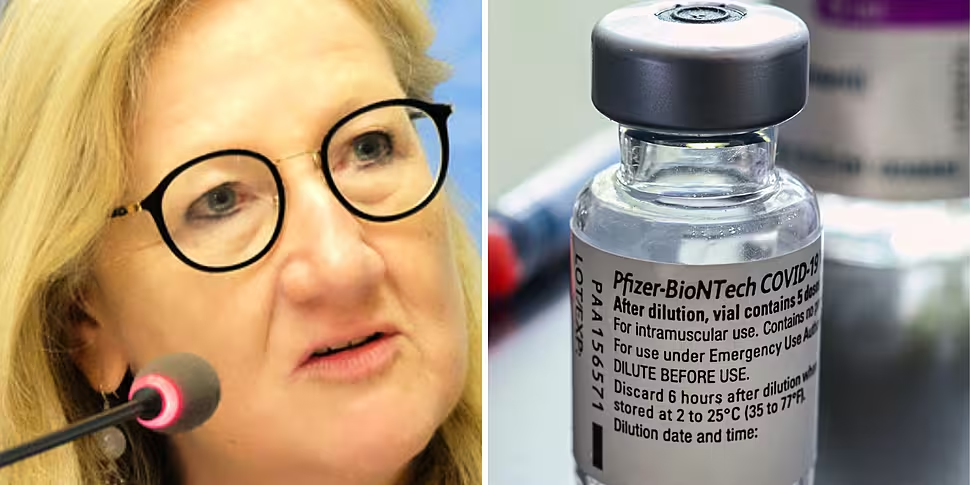There's still no consensus on how quickly booster vaccine doses should be administered, the WHO says.
Many countries have sped up their booster campaigns, particularly amid emerging evidence that a third dose offers strong protection against symptomatic infection from the Omicron strain.
However, different countries are taking different approaches when it comes to the gap between the initial second dose and the booster.
In the UK the interval has been reduced to three months - compared to five months for most people in Ireland.
The Government here is now said to be looking into reducing that gap in a bid to strengthen the country's defences against Omicron.
However, WHO spokesperson Margaret Harris told On The Record the evidence on booster vaccines is still evolving.
She said: “There are many, many different vaccines out there and they have different mechanisms.
"So the evidence that may apply to one particular vaccine is maybe a different set of evidence for another vaccine.”
She said the WHO is assessing the evidence, but the optimal gap between initial vaccination and a booster is still a “relatively open question”.
She observed: “We just did a review of the mix-and-match [vaccines]… we are seeing you may get an advantage, but again depending on which particular ones you used.
“The evidence on all this evolving. But I would say to people - do get vaccinated when it’s your turn.”
Europe 'driving the pandemic'
Dr Harris also said it's still Europe "driving the pandemic", despite the rapid spread of Omicron in southern Africa.
She said a majority of recent COVID-19 cases are from Europe, and most of them are cases of the Delta strain of the virus.
She was speaking as many European countries put in place new measures in a bid to slow down any potential spread of the new strain.
So far, Ireland has had six confirmed cases of the new variant - but the UK is now reporting hundreds of new cases every day, mostly in England.
British authorities have warned the new strain could become the dominant variant there within days or weeks.
Dr Harris said there's still a lot we don't know about Omicron - despite the 'rapid and transparent' data provided by South African scientists.
She explained: “Thanks to the South Africans and their extraordinary [scientific efforts and reporting]... we do know in South Africa it has caused a very rapid rise in cases. The important thing there is they actually had very low levels of transmission of Delta at the time, so Omicron came in and caused a very rapid spike.
“In Europe, we’ve already got a very big outbreak of Delta. Globally, Europe is driving the pandemic - 65% of all cases over the last week came from Europe, and they are still mostly Delta. So we don’t know yet whether Omicron has an advantage over Delta in that circumstance.
“On the severity, South Africa has a young population… and its population structure is very different to Europe.
“The information from South Africa isn’t really giving us a clear enough idea of what’s going to happen in Europe - we’re going to have to watch that evolve."
She said it doesn't appear as if COVID-19 spread has a seasonality aspect - except that people tend to socialise outdoor more during the summer, making it more difficult for the virus to spread.









